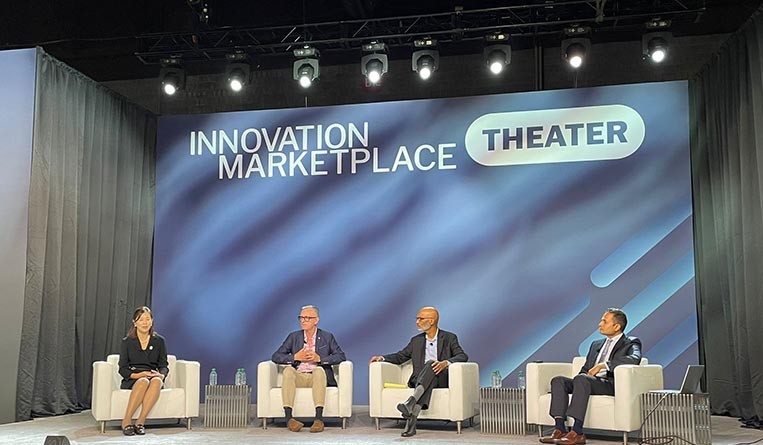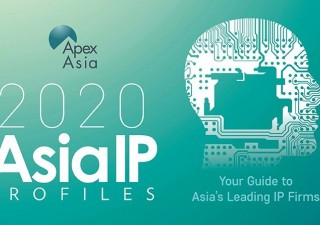INTA 2024: AI and diversity are top concerns for IP law firms
21 May 2024

Artificial intelligence (AI), diversity, equity, and inclusion (DEI), and environmental, social and governance (ESG) issues are among the top concerns currently facing law firms.
In a live poll, the audience of the INTA 2024 session, “What Keeps Me Up at Night: Navigating Pressing Issues in Law Firm Management,” ranked AI as the topic their law firms are most concerned about, followed by ESG and DEI.
John Lewis Jr., a Houston- and Atlanta-based partner at Shook, Hardy & Bacon, told the panel that law firm managers also face issues of talent retention, succession planning, revenue growth and profit.
“DEI, in particular, has been a focal point for much of the discussion for many companies in this industry and around the world,” he told the session panel of his fellow law firm managers.
Lewis also pointed out, in particular, “generational diversity,” which presents challenges and opportunities for law firms to integrate traditional and modern practices and harness differences among a multi-generational group of lawyers.
“One of the things that will be interesting to talk about is the aspect in DEI that doesn’t get talked about as much, and that is the idea that for the first time in history, we’ve got five different generations in the workplace,” he said, referring to traditionalists (also known as the silent generation), boomers, Gen X, millennials and Gen 2020.
“Generational diversity gives us a lens into how things are changing – because they are changing dramatically. We need to think about how we retain talent, attract talent, and transfer knowledge from older to younger generations,” Lewis added.
Linda Zhao, founding partner of GoldenGate Lawyers in Beijing, said talent recruitment and retention are also significant issues in China.
“We have challenges getting talent in China law firms, especially a boutique law firm like us. Our offers are somewhat above average but still not attractive enough. In China, law school focuses more on academics than practical skills, so a high GPA doesn’t mean high performance. And the reference tag is not complete at all, so we do have a lot of challenges here,” she told the INTA session panel in Atlanta.
In this regard, Zhao noted that her law firm had started a “whole process management” at the recruiting stage using a proprietary survey to assess candidates based on their professional quality and interpersonal skills.
Anuj Desai, a partner at Arnall Golden Gregory in Atlanta, raised the issue of bias interrupters, telling the panel that law firm managers must be “intentional” in fighting these biases.
“What we’re hearing is that it doesn’t matter whether you’re in China, the UK or the U.S. DEI issues are pervasive, and they’re different based on the market and the size of the firm,” he said. “One of the things that U.S. law firms look at is bias interrupters – interrupting the inherent biases that may be ingrained in law firms.”
“We have to be very intentional about it, and that is very important for those in the management space,” Desai added.
In terms of AI, Simon Bennett, a partner at Fox Williams in London and head of the firm’s IP team, said that from the UK and European perspectives, AI has been an issue “for a long time now,” and that many firms already have AI policies and procedures, with some companies also developing their own AI solutions.
He noted that AI is useful in trademark searches, making the work cleaner and more efficient, as well as in IP litigation and disputes. “You can use AI in those situations. We’ve used it in our firms to help improve the cost efficiency and speed of doing those sorts of tasks.”
Zhao said AI is also helpful in the firm’s daily work, particularly in translation, which she noted is often needed when representing international clients.
“One of the typical AI that we’re using in our office is translation. It is very efficient for the legal work, and it saves us a lot of time and cost,” she said.
With all the buzz surrounding AI, Lewis warned of the dangers of relying too much on this technology.
“AI is a game-changer for what we do as lawyers, but it’s also sort of like the superfast car that we now own, but we don’t know how to drive,” he told the panel, citing the professional responsibility concern and client confidentiality concern related to using AI.
“It is a potential liability in terms of how it’s employed in your offices,” Lewis added. He also pointed out the concept of “algorithmic bias” in such technologies, warning lawyers to use them with caution.
“We know because algorithms are written by human beings that they have embedded bias,” Lewis said. “So before we become too enamoured with the idea of AI being all-knowing and all-powerful, I think we have to also bring our own deductive skills and our own examination.”
“It’s important to celebrate AI and the advances that it brings, but it’s also important to remember that where there are human involvements, there will always be the potential for bias,” Lewis added.
Desi pointed out that “there’s no great tool” related to AI; each one is learning as it goes.
“It learns from you. So if you use it and it sees how you’ve rearranged things, it goes back in, and you’ll see these things mature over time. But I have seen a lot of bad tools as well, so you need to be very cautious,” he said. “So I think we will get there at some point, but not quite yet.”
- Charlee C. Delavin, reporting from Atlanta






